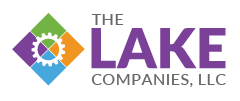Continuous Improvement in Inventory Management: The Role of Automation and Data Analysis

In today’s fast-moving business environment, continuous improvement is critical for staying competitive, especially in inventory management. Within SyteLine ERP, leveraging automation and data analysis can make the difference between a well-run, efficient operation and one bogged down by delays and inaccuracies. But what does continuous improvement really look like in the context of inventory optimization?
Establishing a Baseline for Continuous Improvement
The first step in any continuous improvement process is to establish a baseline. This gives you a snapshot of where your operations stand today so that you can track improvements over time. For inventory management, this means capturing data on current inventory levels, WIP, lead times, and vendor performance. Tools like SyteLine’s Fact-Trak can help automate this process, providing clear metrics to measure against in the future.
Without a baseline, it’s impossible to know whether your efforts are yielding results. By regularly comparing new data to this initial snapshot, businesses can see how their inventory processes are improving or where they still need work.
Simplifying Data Collection
One of the most critical components of continuous improvement is simplifying data collection. Accurate, up-to-date data is essential for making informed decisions, but the process of gathering that data should not overburden your employees. In fact, one of the primary goals of automation is to take the drudgery out of data collection, allowing employees to focus on higher-level tasks.
For example, SyteLine ERP allows businesses to automate routine tasks such as inventory receiving, shipping, and material issues. By streamlining these processes, companies reduce the risk of errors and ensure that the data collected is as accurate as possible. The less manual input required, the more reliable the data becomes.
Leveraging Automation for Continuous Improvement
Automation is a key tool for continuous improvement, but only if it simplifies the process for employees. When automation complicates workflows, it can create inefficiencies that slow down progress. For example, if employees are required to fill in too many fields or use overly complex systems, they’re more likely to make mistakes, leading to poor data quality and slower improvements.
SyteLine ERP’s automation tools are designed to simplify the process, ensuring that employees only see the information they need. By reducing the number of steps required to complete tasks, automation can increase accuracy and reduce the time spent on repetitive tasks.
Analyzing Data for Insights
Data analysis is at the heart of continuous improvement. Once data is collected, it must be analyzed regularly to identify areas where further optimizations can be made. SyteLine ERP allows businesses to track key metrics such as inventory turns, cycle count accuracy, and vendor lead times. With this information, companies can prioritize which areas to focus on next.
For example, if inventory turns are low, it may indicate that you’re carrying too much stock, leading to increased handling costs and tying up valuable resources. By analyzing these trends over time, businesses can make data-driven decisions that lead to real, measurable improvements in their inventory processes.
Continuous improvement in inventory management is an ongoing process, but with the right tools and strategies, it’s a manageable and highly rewarding endeavor. SyteLine ERP provides the automation and data analysis capabilities needed to streamline operations, improve accuracy, and drive long-term success. By simplifying data collection, leveraging automation, and making informed decisions based on regular data analysis, businesses can keep their inventory processes running smoothly while continuously finding new areas for improvement. For more information on how The Lake Companies’ can help your organization be much more successful with Continuous Improvement in Inventory Management, contact us.


Comments are closed.